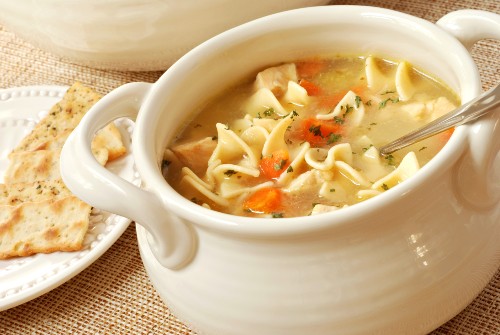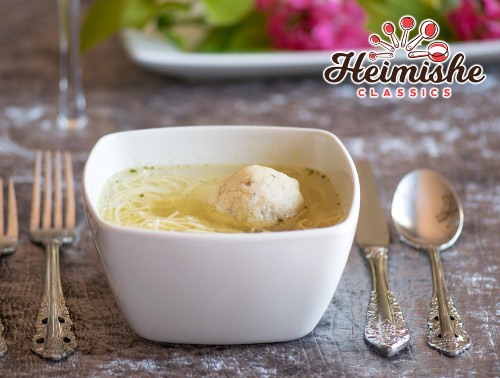In one word, comfort food is nourishment.
Comfort food is what tastes delicious to us — physically, emotionally, and viscerally.
If comfort food was a location, it would be home.
It would be, more specifically, our childhood home. In a kitchen, probably, with fragrant steam rising over bubbling pots, sharing a meal with our loved ones, and our most meaningful memories.
Comfort food is not simply a burst of fat or sugar, or the happy marriage of both (buttercream frosting, I’m talking to you!) The specific foods we choose to eat to lift ourselves out of bad moods, or to engage in happy ones, are wired deep inside the mysterious pathways of our brains.
Comfort foods are the foods we have learned to associate with our childhoods; we subconsciously link comfort foods with safety, security, and the warm fuzzies of being cared for.
What is your favorite comfort food?
Is it a melty, bright orange mac and cheese? A pint of ice cream crammed with chocolate peanut butter cups? A beef burger with delicious fat dripping onto its white-bread bun?
Far from universal, comfort food is in the eye — ahem, on the tastebuds — of the beholder.

Gender Differences (This Will Not Surprise You)
According to a 2003 University of Illinois study, males and females report drastically differing comfort foods.
Studies show that women go cuckoo for cocoa, while men are mad for meat.
For comfort, males turn to warm, hearty meal foods (like steak, casseroles, and soup). Women, on the other hand, prefer cold, sweet snack foods (like chocolate and ice cream).
But we’re betting you already knew that.

Now That’s Some Scrumptious Psychology!
Remember Pavlov’s salivating dogs? The experimenter’s canines started to drool when they heard the bells they were conditioned to associate with mealtime.
Turns out we have lots in common with Pavlov’s pooches — at least when it comes to comfort food.
An Atlantic article (“Why Comfort Food Comforts”) quotes psychology professor Shira Gabriel. “I tend to think of it in terms of classical conditioning,” Gabriel said. “If you’re a small child and you get fed certain foods by your primary caregivers, then those foods begin to be associated with the feeling of being taken care of.”
In other words, our go-to comfort foods come drenched in the savory sauce of nostalgia. (P.S. If you grew up in the U.S., this sauce may very well taste like Heinz.)
And it’s not only the cooking of our parents and grandparents that shape our comfort food preferences — our individual cultures play a huge role as well.
Cultural Comfort Food
“Nearly every culture and religion uses food as an important symbolic custom, from the American Thanksgiving feast to the Jewish Passover Seder,” write Evelyn Tribole and Elyse Resch, nutrition therapists and co-authors of the book Intuitive Eating. “Each time a significant life experience is celebrated with food, the emotional connection deepens.”
So, if you wash down a wedge of handmade shmura matzah with grape juice, the part of your brain marked “Pesach” will fire up with neural activity. Oh, and don’t be surprised if you’re suddenly overcome by an intense horseradish craving.
The Dark Side of Comfort Food
Food has the astonishing capacity to walk us through the vagaries of life — food is there when we learn, grow, build relationships, worship, and celebrate our most precious occasions.
“Occasionally eating comfort foods can be a part of a healthy relationship with food, if you do it while staying in touch with your satiety levels and without guilt,” write Tribole and Resch.
But when comfort food becomes the #1 relied-upon coping mechanism, it can be painfully damaging.
Finding Comfort Without the Food
Make time to explore the nurturing activities that can provide comfort without the food:
- Nap
- Take a do-nothing break
- Listen to music
- Play Scrabble
- Pet a kitten
- Make time for an old friend
- Write a poem or journal
- Spend time in nature
When it is not your primary coping mechanism, food can be a great (and healthy) comfort. Take Geneen Roth’s advice in the book When You Eat at the Refrigerator, Pull Up a Chair: Eat a Hot Meal Every Day.
“When you don’t have a built-in way of giving time and attention to yourself, food becomes the main source of sweetness in your life. And ‘treats’ are usually cold,” Roth writes. “Diet sodas, salads, cookies, chips, protein bars, or frozen yogurt are not food. Neither, although hot, is coffee.”
Carve out the time to cook and enjoy some nourishing (and hot!) traditional Jewish comfort food.
Some of Our Favorite Classic Jewish Comfort Foods:
Have it Your Way BBQ Chicken Schnitzel Fingers
Hungarian Apple Pie (“Olmash”)
What’s your favorite childhood comfort food?
Written by Lubicom for Kosher.com


